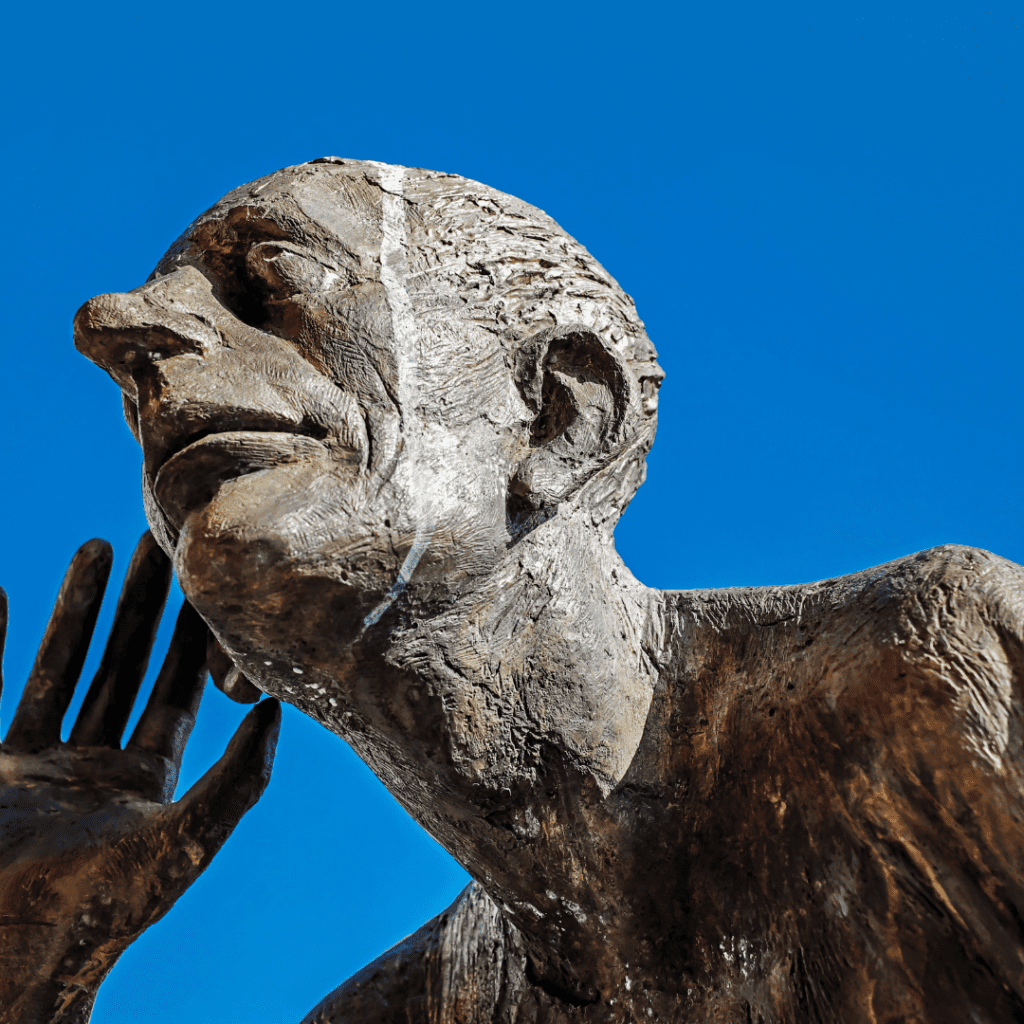Friendly Reminder: A weekly reflection from the Quaker Leadership Center
Recently, I was listening to a podcast discussing the problem of plagiarism among preachers. The host referenced a high profile example of a pastor who was caught using sermons written by someone else, without attribution. They were even using first-person stories as if they personally experienced them!
The host interviewed a professor about this problem and what could be done about it. I expected the professor to provide a list of suggested steps a preacher could take to avoid accidental plagiarism. But I was surprised when the professor took a different approach.
Instead of listing best practices, the professor said the solution to plagiarism was a vital, personal relationship with God. Drawing on his Black church tradition, he said that preachers avoid plagiarism by “digging their own wells.” He suggested that preachers go wrong when they stop deepening their life of spiritual nurture, biblical study, and mentorship. So they are forced to use someone else’s work and draw from someone else’s well.
I would nuance this a bit. There are systemic issues, as well. Our expectations for pastors are too high. Maybe it’s unrealistic to expect them to prepare and present inspiring messages week after week. Quakers would add that it’s limiting and problematic to center one person’s voice in bringing forth a word from God. We are all ministers. Others would add that we should also gather inspiration from the saints and companions of a longer spiritual tradition. We’ve inherited time-tested, life-giving wells.
But I think the professor is on to something. We need to keep current in our relationship with God. We need to keep in step with our Guide and live in our Light. Otherwise, we are not able to offer what Thomas Kelly called “first-hand sermons.”
[More on first-hand sermons here]
How do we dig our own well? One approach is to follow the advice of another great preacher named Frederick Buechner:
If I were called upon to state in a few words the essence of everything I was trying to say both as a novelist and as a preacher, it would be something like this: Listen to your life. See it for the fathomless mystery that it is. In the boredom and pain of it no less than in the excitement and gladness: touch, taste, smell your way to the holy and hidden heart of it because in the last analysis all moments are key moments, and life itself is grace.
What I love about Buechner’s quote is that he invites us to see divine presence and revelation in all of life. This is consistent with the Quaker belief that life itself is sacramental – anything and everything can be a means of experiencing grace and encountering truth.
In that spirit, there are many resources and practices that can help you listen to your life by “touching, tasting, smelling” your way to Mystery.
In my opinion, we should not neglect the classical resources for message preparation (especially if you have a ministry of congregational preaching or “vocal ministry”):
-Meditating on biblical passages, memorizing and/or engaging lectio divina
-Utilizing quality biblical & theological commentaries
-Studying linguistic & contextual issues from the text
-Discerning intersections between biblical text and congregational context
-Pondering themes of pastoral care, spiritual formation, and prophetic witness
-Clarifying the “big idea” of a message and using effective communication principles to help the sermon “stick”
But in the wider world of a “listening life,” leaders can also listen in ways like these:
Harvest your journal – Look for insights, memories, and prayers that have been formational for you in recent seasons of life.
Review recent reading – Look back at where you earmarked a page, highlighted a quote, or paused for further consideration.
Recall conversations of consequence – Think back to recent conversations with friends, colleagues, or strangers, noticing when they said something meaningful, provocative, or timely.
Scroll in the Spirit – Scroll through the pictures on your phone, noticing ones that bring you joy, touch pain points, or evoke a spiritual principle.
Taste and See – Remember what you’ve eaten over the last couple weeks – savor the tastes and smells, reflect on the sense of community with neighbor, nature, and Creator. It’s easy to forget our meals but many spiritual traditions see preparing and eating food as sacred practices.
When we listen to our lives and share first-hand ministry, we encourage others to listen to their own lives and live faithfully in their Light. So, listen closely, leaders.
(And when you do borrow, don’t forget to give credit.)
